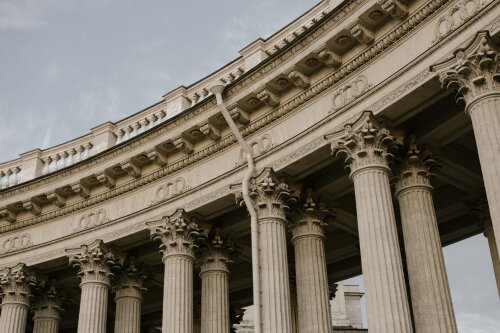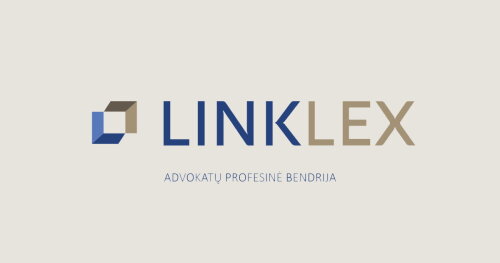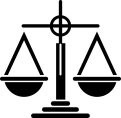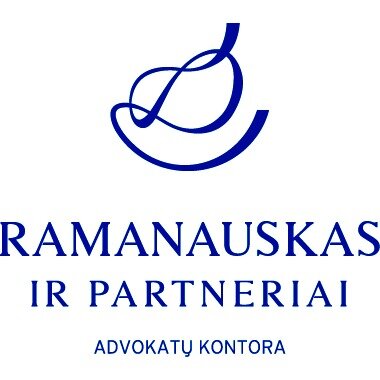Best Sanctions & Export Controls Lawyers in Republic of Lithuania
Share your needs with us, get contacted by law firms.
Free. Takes 2 min.
Or refine your search by selecting a city:
List of the best lawyers in Republic of Lithuania
About Sanctions & Export Controls Law in Republic of Lithuania
Sanctions and export controls are crucial legal mechanisms used by the Republic of Lithuania to regulate the movement of goods, services, technology, and capital across its borders. These measures are often implemented to align with European Union (EU) law, United Nations Security Council resolutions, and Lithuania’s own national security objectives. Export control laws are designed to prevent the proliferation of weapons, dual-use items, and sensitive technologies, while sanctions restrict transactions with certain countries, entities, or individuals to advance foreign policy and security interests.
Lithuania, as an EU member state, applies both EU-wide sanctions and its own national measures. It enforces restrictions regarding trade with embargoed countries, the export of certain technologies, financial transactions, and compliance obligations on both companies and individuals. The legal framework is comprehensive, involving various regulatory bodies and strict penalties for non-compliance.
Why You May Need a Lawyer
Legal guidance is essential in sanctions and export controls for several reasons. Many businesses, exporters, financial institutions, and private individuals face complex and often-changing laws that carry substantial penalties for violations. Below are common situations where a lawyer's assistance is critical:
- You deal in goods or technologies that could have both civilian and military use (dual-use items)
- You import or export products or services subject to EU or national restrictions
- You need to verify customers or partners to avoid violating sanctions lists
- Your business handles financial transfers potentially affected by asset freezing regulations
- You want to implement compliance programs to protect your company from unintentional breaches
- You are under investigation or facing penalties for alleged violations of sanctions or export controls
- You need licenses or authorizations for exporting controlled goods
- Your business is expanding internationally and you want to understand Lithuanian and EU compliance requirements
A lawyer can clarify the legal scope, assist with license applications, help design compliance programs, and represent you in case of disputes or investigations.
Local Laws Overview
In Lithuania, sanctions and export controls are primarily governed by a combination of EU regulations and national legislation. Key aspects include:
- EU Regulations: As an EU member state, Lithuania is bound by sanctions and export control measures adopted at EU level, including restrictions against certain countries (such as Russia, Belarus, Iran), arms embargoes, and financial sanctions.
- National Legislation: Lithuania has domestic laws, such as the Strategic Goods Control Law, that supplement EU rules. This legislation regulates the export, transit, and brokering of strategic and dual-use goods.
- Licensing System: Certain exports and brokering activities require prior authorization from the Lithuanian authorities, such as the Ministry of Economy and Innovation and the Customs Department.
- Customs and Border Controls: Customs authorities enforce compliance at the border and conduct risk assessments on goods and technologies.
- Sanctions Lists and Due Diligence: Entities must screen their business partners against various sanctions lists published at the EU and national levels.
- Penalties: Non-compliance can result in significant fines, the revocation of licenses, reputational harm, and, in severe cases, criminal liability.
It is vital for commercial actors to understand which goods, services, or transactions are restricted or require special permission. Regular monitoring of regulatory updates is also recommended.
Frequently Asked Questions
What are dual-use goods and why are they controlled?
Dual-use goods are items, software, or technology that can be used for both civilian and military purposes. Lithuania controls the export, transit, and brokering of such goods to prevent their use in the production of weapons of mass destruction or for military end-uses in embargoed countries.
Which government body is responsible for issuing export licenses in Lithuania?
The Ministry of Economy and Innovation, in coordination with the Customs Department, oversees the issuance of licenses for controlled goods and technologies.
How do I know if my business partner is on a sanctions list?
Businesses must screen their partners against lists published by the European Union and Lithuanian authorities. These include the EU Consolidated List of Sanctions and any additional national lists.
Are there penalties for accidental violations of sanctions or export controls?
Yes, unintentional violations can still result in administrative fines, revocation of licenses, or other penalties. It is essential to implement robust compliance procedures to minimize these risks.
Can I apply for a license to export controlled goods to embargoed countries?
In most cases, exports to embargoed countries are prohibited, but exceptions may exist for humanitarian purposes or under special circumstances. Each case is thoroughly assessed by the competent authorities.
What should I do if my business is under investigation for a sanctions violation?
Consult a lawyer as soon as possible. Early legal guidance can help you understand your rights, cooperate with authorities, and work towards the best possible outcome.
Are there reporting obligations on suspicious transactions?
Yes, certain businesses, such as financial institutions, are required to report suspicious activities related to sanctions evasion or export control breaches to the Financial Crime Investigation Service.
How often do sanctions and export control rules change?
Changes can occur frequently, especially in response to international developments. It is crucial to monitor updates from both Lithuanian and EU regulators.
Can individuals also be subject to sanctions and export control regulations?
Yes, both companies and private individuals must comply with all relevant laws. Ignorance of the law is not a defense.
Is it necessary to have a compliance program in my company?
While not always legally required, a formal compliance program significantly reduces the risk of violations and demonstrates a commitment to legal and ethical conduct.
Additional Resources
If you need further information or support, the following resources may be helpful:
- Ministry of Economy and Innovation of the Republic of Lithuania - Handles export licensing and information about controlled goods
- Customs Department under the Ministry of Finance - Oversees border controls and enforcement of customs regulations
- Financial Crime Investigation Service (FCIS) - Reports and investigates suspicious activities related to sanctions and financial crimes
- European Commission (Directorate-General for Trade) - Publishes EU-wide sanctions lists and export control regulations
- Lithuanian Chamber of Commerce - Provides advisory services for businesses involved in international trade
- Local law firms specializing in international trade, compliance, and export controls
Next Steps
If you believe your business or personal activities may be affected by sanctions or export control regulations in Lithuania, consider the following actions:
- Assess your activities for potential exposure to sanctions or export controls
- Conduct regular screening of customers, suppliers, and partners against relevant sanctions lists
- Consult with a qualified legal professional who specializes in trade compliance and international law in Lithuania
- Implement or update an internal compliance program to manage risks
- Stay informed about legal updates from Lithuanian and EU authorities
- Reach out to relevant government bodies for guidance or clarification
Seeking legal advice early can help you avoid penalties, protect your reputation, and ensure smooth international operations. Do not hesitate to contact a specialized lawyer for support tailored to your specific needs.
Lawzana helps you find the best lawyers and law firms in Republic of Lithuania through a curated and pre-screened list of qualified legal professionals. Our platform offers rankings and detailed profiles of attorneys and law firms, allowing you to compare based on practice areas, including Sanctions & Export Controls, experience, and client feedback.
Each profile includes a description of the firm's areas of practice, client reviews, team members and partners, year of establishment, spoken languages, office locations, contact information, social media presence, and any published articles or resources. Most firms on our platform speak English and are experienced in both local and international legal matters.
Get a quote from top-rated law firms in Republic of Lithuania — quickly, securely, and without unnecessary hassle.
Disclaimer:
The information provided on this page is for general informational purposes only and does not constitute legal advice. While we strive to ensure the accuracy and relevance of the content, legal information may change over time, and interpretations of the law can vary. You should always consult with a qualified legal professional for advice specific to your situation.
We disclaim all liability for actions taken or not taken based on the content of this page. If you believe any information is incorrect or outdated, please contact us, and we will review and update it where appropriate.
Browse sanctions & export controls law firms by city in Republic of Lithuania
Refine your search by selecting a city.














